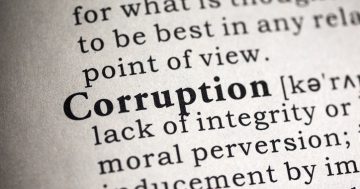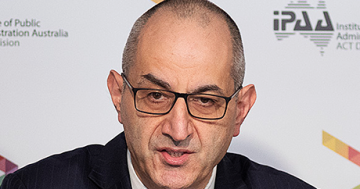
Can the Albanese Government shift the dial on integrity? Photo: File.
Integrity and culture are essential emerging themes of the Albanese Government’s ‘brand’.
It got a kick along a few weeks ago with the release of The Coaldrake Review, led by Professor Peter Coaldrake.
Professor Coaldrake, a former vice-chancellor of the Queensland University of Technology (QUT) and unquestionably one of the most respected public service thinkers and administrators in Australia, reviewed the culture and accountability of the Queensland Public Sector.
This makes the review one of the first of its kind in Australia.
Unlike other reports and reviews that perhaps only examined one institution (such as the Jenkins Report into Commonwealth Parliamentary Workplaces), or organisational or industry context (such as some of the recent Royal Commissions), the Coaldrake Review examined the entire public sector in Queensland.
Doing so from both an integrity and culture perspective recognised, as nearly any decent management and governance researcher would tell you, that you can’t fix one without the other.
What it found reinforced these findings.
Without a strong culture that allowed public servants to speak frankly and fearlessly, a culture existed where the opposite happened – public servants would be fearful of speaking out or expressing a frank and honest opinion as many had witnessed what had happened to those who had.
This was in part caused by the Ministers in charge of departments. Coming from cutthroat political cultures where retribution for speaking against the faction/party/leader was severe and immediate, politicians, many of whom had spent decades working their way up through their parties and Parliament, knew no other way and did the same as leaders of departments.
This then permeated down through the levels, from Directors-General (and Secretaries and Agency Heads) to even the lowest levels, where unity of thought, regardless of public benefit, was rewarded.
As one mid-tier public service manager I know said to me once, sometimes to get along you have to go along.
This culture then allows for many other ills to creep in: key stakeholder groups, driven by profit and self-interest, manipulating ministers and senior public officials through all sorts of methods to obtain favourable outcomes at the expense of the development of key policy areas, even if other public officials knew this was going to lead to government and society ultimately paying a high price.
There are many, many industries and organisations where finally this is all ripped open and exposed through a Royal Commission or whistleblower.
Yet with culture, the way it is in many public sector organisations, whistleblowers are few and far between. Granted fewer rights than organised crime witnesses, they remain silent, allowing the dark and sinister to grow and prosper.
Diversity has done little to change this, something the Jenkins Report noted when it came to bullying.
Instead, organisations have turned a blind eye to the lack of diversity of opinion and culture which would actually lead to real change and growth in organisations crying out for it, along with helping those from diverse backgrounds feel as though they were more than tokenistic appointees but there because they brought value to an organisation in multiple contexts.
And this is what makes it such a complex issue for a first-term government.
Integrity can be quickly dealt with through ICAC-like methods: the power to covertly surveil anyone in any public role, investigations carried out by teams with expertise in areas such as law, data, IT, accounting and administration and, most importantly, through viewable public hearings.
But culture, as the drama at the Canberra Hospital has made clear, takes longer to fix and get right. It takes a wider commitment to change at the political, governance and societal level.
As the Barilaro issue revealed, appointments can’t just be made because someone is ambitious (which can be code for narcissistic) or they know the right someone or a group. They have to be made on merit by those willing to speak frankly and without fear of their colleagues because that is the dominant culture in that organisation.
As the Coaldrake Review reveals, this is perhaps something we haven’t seen enough of. But as it also notes, perhaps it is time to let the sunshine in.
Dr Andrew Hughes is a lecturer in Marketing at the ANU and a political commentator. He appears regularly on television and radio and has provided election commentary for the ABC and Seven Network.





















